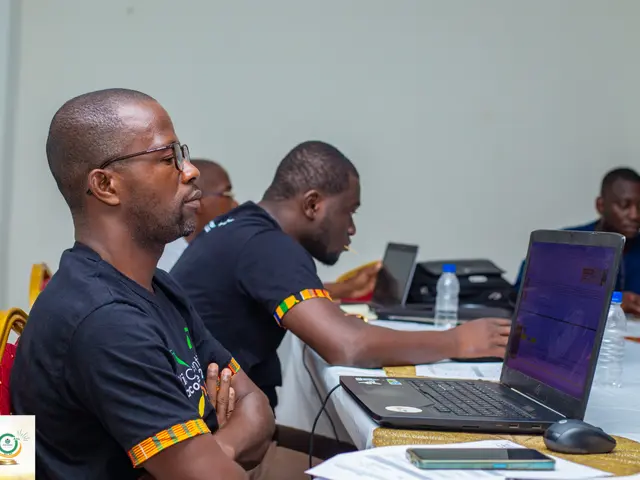Contemplating Resignation? 3 Questions School District Leaders Should Ponder
In the ever-evolving landscape of education, the role of a superintendent can be as dynamic as the communities they serve. The COVID-19 pandemic has brought about a significant shift in community dynamics, and with it, the need for leaders who can adapt, resolve conflicts, and meet the community's evolving needs.
Recent research shows that superintendent turnover has increased significantly since the start of the pandemic. According to data from the Superintendent Lab, more than 40% of districts experienced at least one change in superintendent between the 2019-20 and 2023-24 school years, with 8% experiencing at least two changes.
David Schuler, a former superintendent and the executive director of AASA, emphasises the importance of regular meetings between superintendents and their local school boards to reflect on their goals and get a frank assessment of board members' views of their performance. Schuler and Cassandra Schug, the superintendent in Belvidere, Ill., share three guiding questions that superintendents can consider when assessing their fit within a district and its broader community:
- What are the values and priorities of this school district and community? How well do my own values and leadership style align with them?
- What can I uniquely contribute to help this district succeed?
- How can I rebuild a sense of unity, community, culture, and partnership in the community during challenging times?
Occasionally, superintendents might need to look for a different and better fit due to a misalignment between their goals and the district's current priorities. Similarly, leaders may feel a need for a new challenge or a change in their personal values that no longer align with the district where they're working.
Superintendents should continuously assess whether their current roles still align with their personal and professional desires. They should also consider if their relationship with the community can be repaired, if needed. In some cases, superintendents who were at the center of controversies during the pandemic might have moved on to facilitate rebuilding.
The often-shifting dynamics of the local school board greatly influence a superintendent's job and priorities. Schuler advises that superintendents should reflect on their role, goals, and relationships to keep tabs on when it might be time to move on.
Clear career paths beyond moving to larger school districts or taking jobs at the state or national levels are not always available for superintendents. However, the ability to adapt, lead, and serve a community through its challenges can make for a rewarding and fulfilling career in education.
The impact of superintendent turnover on school improvement efforts, students' learning, staff morale, and school budgets has been a major concern for researchers. By regularly assessing their fit within a district and its community, superintendents can help ensure a smooth transition and continued success for their schools.
Read also:
- Peptide YY (PYY): Exploring its Role in Appetite Suppression, Intestinal Health, and Cognitive Links
- Toddler Health: Rotavirus Signs, Origins, and Potential Complications
- Digestive issues and heart discomfort: Root causes and associated health conditions
- House Infernos: Deadly Hazards Surpassing the Flames








